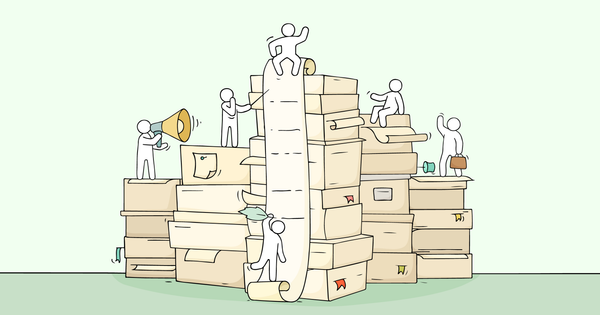02. What It’s Like to Take the ICF Credentialing Exam In Person: My NYC Test Day
An in-depth, step-by-step account of my in-person ICF Credentialing Exam experience in NYC, including arrival logistics, testing conditions, physical and mental challenges, and practical tips for anyone preparing to take the exam at a test center.

Prefer to listen? Here's the audio version.
This is Part 2 of a 4-part series on the ICF Credentialing Exam.
- Part 1: Choosing Where to Take the ICF Credentialing Exam: At Home or at a Center
- Part 2: ICF Credentialing Exam Day: An In-Depth Look at My In-Person Experience in NYC
- Part 3: Understanding the ICF Credentialing Exam: What It Is, How It Works, and When You Take It
- Part 4: How I Studied for the ICF Credentialing Exam and What Helped Me Pass
On a very rainy April 2nd, 2024, I arrived at Pearson Professional Center Midtown, 19 W 44th St, NYC, to take the ICF Credentialing Exam as the final part of my MCC application. This post walks through my step-by-step experience, from arrival to results, along with practical advice for anyone planning to take the exam in person. If you're someone like me who likes to visualize the day, I hope these insights help you feel more prepared and confident. For an overview of the pros and cons of taking the exam at home versus at a center, see Part 1: Choosing Where to Take the ICF Credentialing Exam.
Having read enough online reviews describing the customer experience as rude, unhelpful, or much worse, I walked into the testing center with no expectation for a warm welcome. To my pleasant surprise, the front desk associate was incredibly helpful and friendly, radiating positive energy. It wasn’t over the top or fake, but just the right amount of uplifting cheerfulness that I was ever so grateful for.
The onboarding process was fairly simple and smooth. First, I stored all my belongings in a locker. In the official Pearson video I watched, it looked like the locker room was separate from the waiting area. But at this location, the lockers were right next to the chairs in the waiting room and the check-in counter, so I didn’t have to walk anywhere else. Next was the ID and biometric check-in. They scanned my hand to confirm my identity.
I made sure to give myself enough time to familiarize myself with my surroundings. Water fountain in the waiting room, check – no need to run to the locker for my water bottle during break. Great. I also scoped out the restroom locations outside of the testing center (one individual unisex one and a larger ladies room with several stalls farther to the left) and gauged how crowded they might get (unlikely). Again, it felt more like preparing to be a bodyguard than a professional coach. Whatever it takes to ground myself to be able to focus on the test.
And then it was time. The front desk associate instructed me to walk further down the hallway where there was a security desk. There, yet another friendly and helpful test administrator conducted a final check, verifying my ID again and ensuring I had nothing on me. She told me to raise my hand if I needed help and handed me a marker, a piece of paper, and a noise-canceling headset. I was getting ready to walk into a big room where people were sitting next to each other with partitions in between, but then she took me to a private room just a few steps away where I would take the exam by myself. I could not believe my luck that day. Great staff and now a private room? The multiple-choice testing angels must really want me to pass this thing, I thought.
I sat down and took a deep breath, centering myself and focusing. I reminded myself that my dedicated study period, along with my extensive career as a coach, mentor, assessor, and coach educator, had prepared me well for this moment. Just because I don't enjoy multiple-choice tests doesn't mean I suck at them. After all, I may have failed my driver's test, but I did pass the CKA (Coach Knowledge Assessment). I've done much harder things at work. I got this. I also gave myself permission to fail spectacularly, knowing I could always take it again. No big deal if this turns out to be a practice run.
Looking back, I experienced two main challenges: time and maintaining focus. Allow me to elaborate.
Time
I knew to spend less than two minutes per question and had to pick the best and worst answers (more tips and resources for exam prep here). Some choices were obvious, while others were not. I often got sucked into a question and had to force myself to move on, which was exhausting. While I flagged questions to revisit later, I didn't have time to do that thoroughly, and revisiting them often led to analysis paralysis, creating even more doubt. FYI, you can submit a request for extended time if English is not your native language (more details can be found here). I didn't apply for that extension myself, but I'm also not sure if that would've improved my score. My advice is not to leave any questions unanswered even if you're not confident, just in case you don't have enough time or stamina to revisit them later. Also, you won't be able to revisit questions from the first half in the second half.
Maintaining Focus
When I took the CKA (Coach Knowledge Assessment), the testing conditions were less strict, and I remember chewing gum to maintain focus, channeling my inner major leaguer. In this Credentialing Test, you can't use anything like that unless they're on the Pearson VUE Comfort Aid List, which are predominantly medical support items. You can't even get up to stretch or walk around outside of your break time. With all the reading, interpretation, and decision-making under time pressure, it was difficult for me to maintain the same level of focus for three hours. I used breathing techniques to center myself throughout. I also became dehydrated towards the end of each part and started developing headaches. Continuing to focus amidst all these conditions was tough. To be honest, looking back, I don't know what I could've done differently other than maybe drinking a bit more water during the break.
My advice for fellow coaches is to not underestimate the importance of physical conditioning for this test. Get optimal sleep in the days leading up to the test, not just the night before. If you can afford it, be spacious with your time by not scheduling anything intense before or right after the exam. Consider the time of day when you are most focused. I scheduled mine after lunchtime to avoid the stress of the morning commute in New York City. If you have to drive to a testing center in an unfamiliar area, consider doing a trial run to familiarize yourself with the route. Also, make sure you're neither hungry nor too full going into the test. I even experimented with different foods to find what worked best for me. I treated this process like a tennis player might prepare for a big game. By the way, I've channeled so many professions by now in this post, I’m starting to feel like a one-person talent agency.
By the time the break came, I was definitely ready for it. I ran to the bathroom and jumped up and down a few times to get my energy back up. I took a small sip of water at the fountain in the waiting room, went back through security, stretched my back real quick, and that was all I had time for in the five-minute break. I was actually impressed that I managed to do all of this in time. Then, I took a deep breath to muster up the drive to do it all over again for another 90 minutes.
The second half seemed to go much quicker than the first. My experience was similar to the first half, in that I didn't have much time to thoroughly review what I had flagged. Once the time was up, the biggest thing I felt was a whole lot of self-compassion. Regardless of the outcome, I knew I did my best. At the same time, if I'm being completely honest, I really, really, really would rather not do this again. When I reached the front desk, the staff was already waiting for me with a piece of folded paper. Feeling completely loopy, I opened it without knowing what it was and saw: “Your Overall Score Performance: Pass.”
I don't know what I was thinking, but I wasn't expecting to get the result this quickly. In the elevator going down, I already received an email from Credly awarding me the MCC badge. It was all moving way too quickly for my brain that was feeling like mushed potato. In the lobby, I called my husband, and it finally sank in. Just like that, my journey of pursuing MCC was complete.
One of the reasons I left the corporate world was because I no longer wanted my titles or the company names I worked for to affect or define me. So, when I began my pursuit of the MCC, I viewed it as a benchmark of demonstrated coaching skills and experience based on the ICF standards, not as a measure of my worth as a professional coach, despite its prestige. Even though I never doubted my ability to achieve it, finally seeing it in writing felt profoundly surreal. Here I was, standing in the lobby, my face covered in tears and snot, feeling a mix of triumph and gratitude. I allowed myself to feel the full weight of the journey and the relief of completion.
I hope my insights have provided clarity and confidence as you prepare for your own exam. If you want to share your testing experience, leave a comment below. Hearing different perspectives might help others who are getting ready. And if you have questions or need mentoring, feel free to reach out. I’m here to support you.
For additional support with the ICF Credentialing Exam, you can also contact support@coachingfederation.org.
Now it’s time to talk about the exam itself. Check out Part 3, Understanding the ICF Credentialing Exam . If you want to skip straight to study strategies, head to Part 4, How I Studied for the ICF Credentialing Exam and What Helped Me Pass.
About the Author: Rei Perovic is the Founder & CEO of Cofactors Strategies, an Executive and Leadership Coach, ICF Mentor, and Coach Educator. A Master Certified Coach (MCC) through the International Coaching Federation — a distinction held by fewer than 5% of coaches globally — she has coached more than 1,500 clients worldwide. She partners with purpose-driven leaders to navigate power, identity, and impact across cultures. Tokyo-born and NYC-based, she is fluent in English and Japanese and also translated Sushi Chef: Sukibayashi Jiro, based on Jiro Dreams of Sushi.





